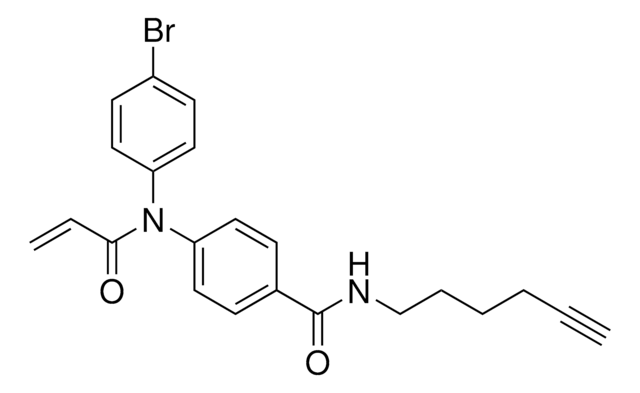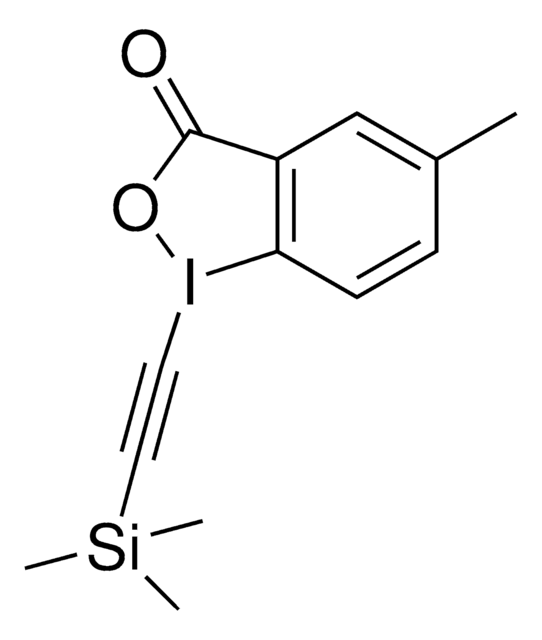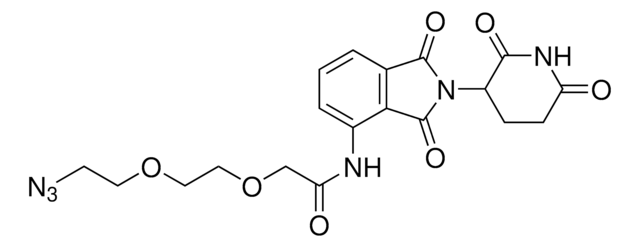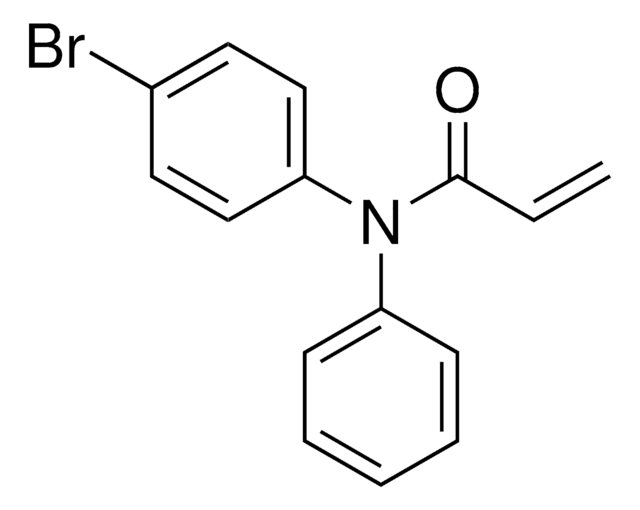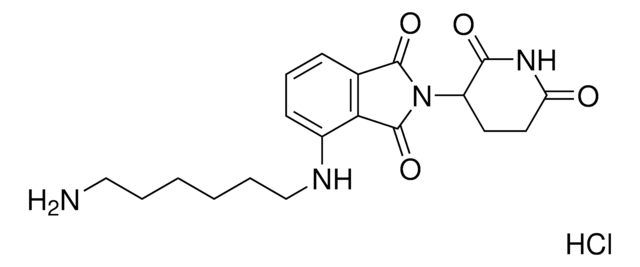추천 제품
형태
powder or crystals (or Solid or Liquid)
Quality Level
반응 적합성
reagent type: chemical modification reagent
reaction type: click chemistry
저장 온도
2-8°C
애플리케이션
KB02yne is a cysteine-reactive small-molecule fragment for chemoproteomic and ligandability studies for both traditionally druggable proteins as well as ″undruggable,″ or difficult-to-target, proteins. This fragment electrophile is the functionalized version of KB02 (912131).
Related useful products may include:
Technology spotlight: Proteomic Ligandability Assessment
Related useful products may include:
- Cysteine-reactive fragments: KB02 (912131), KB03 (912654), KB05 (911798), sulfoxide (925136), CoLDR probe (923818)
- Functionalized scout fragments: KB02-COOH (925047), KB05yne (925144)
- Electrophilc degraders featuring scout fragments: KB02-SLF (914738), KB03-SLF (914975), KB05-SLF (913715), Biotin-SLF (914223)
- Cysteine-reactive probes for chemoproteomics: IA alkyne (924237), IA 5-TAMRA (925020), desthiobiotin iodoacetamide (923826), or biotin iodoacetamide (B2059)
Technology spotlight: Proteomic Ligandability Assessment
관련 제품
제품 번호
설명
가격
Storage Class Code
10 - Combustible liquids
WGK
WGK 3
시험 성적서(COA)
제품의 로트/배치 번호를 입력하여 시험 성적서(COA)을 검색하십시오. 로트 및 배치 번호는 제품 라벨에 있는 ‘로트’ 또는 ‘배치’라는 용어 뒤에서 찾을 수 있습니다.
Kristine Senkane et al.
Angewandte Chemie (International ed. in English), 58(33), 11385-11389 (2019-06-22)
Reversible covalency, achieved with, for instance, highly electron-deficient olefins, offers a compelling strategy to design chemical probes and drugs that benefit from the sustained target engagement afforded by irreversible compounds, while avoiding permanent protein modification. Reversible covalency has mainly been
Vincent M Crowley et al.
ACS central science, 7(4), 613-623 (2021-06-01)
Covalent ligands are a versatile class of chemical probes and drugs that can target noncanonical sites on proteins and display differentiated pharmacodynamic properties. Chemical proteomic methods have been introduced that leverage electrophilic fragments to globally profile the covalent ligandability of
Xiaoyu Zhang et al.
Nature chemical biology, 15(7), 737-746 (2019-06-19)
Ligand-dependent protein degradation has emerged as a compelling strategy to pharmacologically control the protein content of cells. So far, however, only a limited number of E3 ligases have been found to support this process. Here, we use a chemical proteomic
자사의 과학자팀은 생명 과학, 재료 과학, 화학 합성, 크로마토그래피, 분석 및 기타 많은 영역을 포함한 모든 과학 분야에 경험이 있습니다..
고객지원팀으로 연락바랍니다.